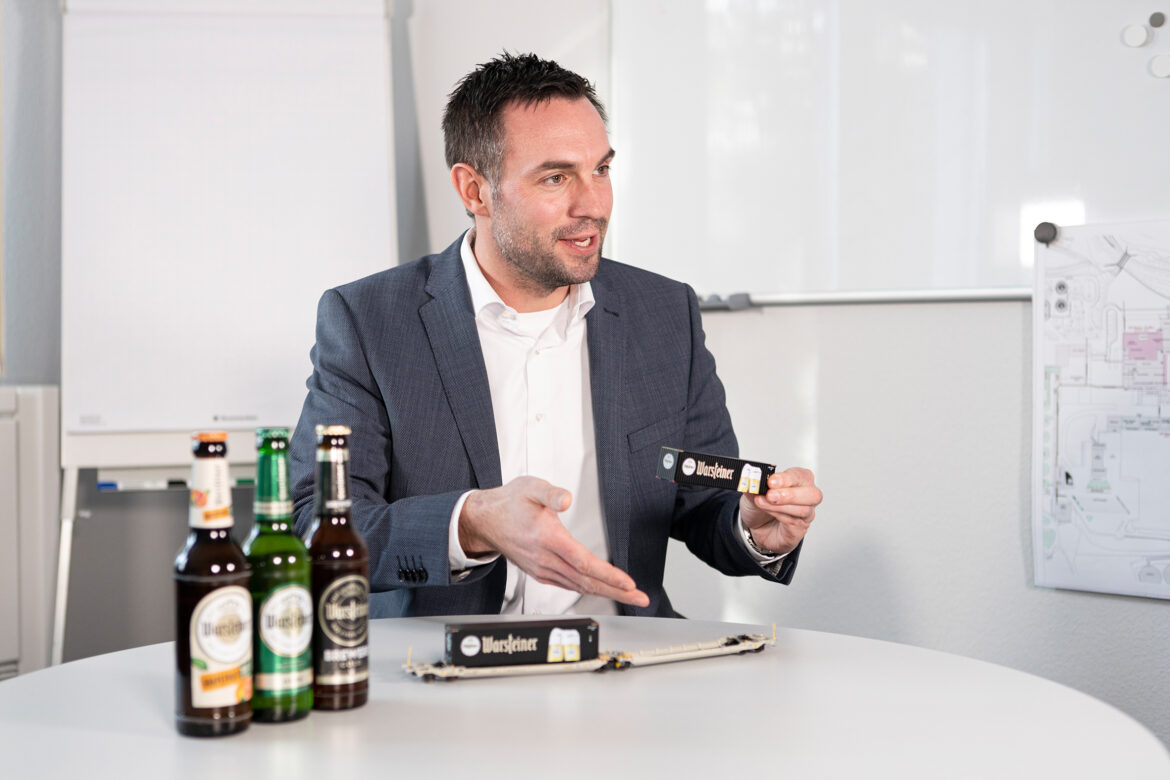An interview with Daniel Küster, Supply Chain Director, Warsteiner Group
Warsteiner is one of the best-known brands of beer in Germany. This family business is now managed by owner Catharina Cramer, the ninth generation of the family. The Warsteiner Group has been running its own container terminal at the Warstein production site in the district of Soest, where it also provides CT services for third parties, since 2005. So the company is intermodal by nature. Logistics boss Daniel Küster has been on board for a year. He has doubled the volume of freight during this period. We talked to him about the reasons behind his commitment to intermodal transport.
Simply Intermodal:
Mr Küster, it is comparatively rare for an industrial enterprise to operate its own container terminal. Why did the Warsteiner Group decide to do so?
Daniel Küster:
We have our own railway infrastructure because our core business comprises not only the brewing of beer, but also the just-in-time distribution of low-stock products to our customers. We must guarantee that our beers and beer mix beverages are absolutely fresh on arrival at our customers: via the seaport of Hamburg, from where we supply our customers in Europe and worldwide, and on transalpine routes via the terminal of Verona, our gateway to the Italian market. So we are intrinsically motivated when it comes to the efficiency of our intermodal trains and we currently attain a punctuality rate of almost 99%. Our expertise in intermodal logistics allows us to provide services for third parties via our terminal, for example for the container transport of food, timber and electrical appliances. We have a one-stop-shop solution and our brand exerts a strong pull. We are gaining new customers thanks to our bold and innovative approach and helping to protect the climate at the same time. After all, the more goods we shift from the road to the railway, the faster we will reach our environmental and emissions targets.
Simply Intermodal:
Kombiverkehr KG is part of your intermodal transport chain. The Frankfurt-based operator’s trains play a vital role in the transport of Warsteiner beers to Italy in particular. What are your reasons for using Kombiverkehr as a CT operator?
Daniel Küster:
We cover the first part of the route by rail with the Westfälische Landeseisenbahn (WLE). Then we continue the journey with Kombiverkehr from München-Riem to Verona Quadrante Europa, where we have to pick up our connections to southern Italy. In order to operate our timetables, we need partners who are strong and highly reliable, partners like Kombiverkehr. We are on an equal footing here in terms of transport.
Simply Intermodal:
What makes intermodal transport so worthwhile for you?
Daniel Küster:
A flexible transport strategy is needed when heavy, bulky goods have to be moved over a long distance. Intermodal rail transport means that we are less affected by congestion, driver shortages and truck payload capacities – Germany is currently short of over 50,000 truck drivers and cargo space is scarce. The railway on the other hand has proven its worth, not only during the pandemic but also, for example, during times of low and high water levels on the Rhine: railway schedules have been absolutely reliable during this difficult period. Intermodal transport stands for continuity and stability over the long term. So when it comes to transport routes, we can react flexibly and increase the security of supply significantly. And there’s the protection of the climate on top of all this.
Simply Intermodal:
Mr Küster, what is your wish for the future of CT?
Daniel Küster:
Compared with road haulage, the cost structure of intermodal transport often requires optimal conditions: long distances of at least 450 to 500 km, transport in pairs and trains working to the fullest possible capacity. I wish more companies like the Warsteiner Group would opt for intermodal transport, whether with their own terminal or by using strong partners. This would make Combined Transport even more efficient and economical. Multimodal rail transport can thus become a game changer in the logistics industry.






Comments are closed.